In this special report, ABIODUN ADEWALE writes on how a local football association, BALFA, in Babura, Jigawa State, is revolutionising local football with its transparent player transfer system and offering opportunities for emerging stars to break into bigger leagues
Sometime in July 2024, a friend sent a message on the social messaging application WhatsApp. It was a Facebook link with the message, “Hello Biodun, I came across this football group where local clubs buy and sell players and also reveal the amount in Jigawa. It should make an interesting read.”
In a system where even in the Nigeria Premier Football League—the highest level of Nigerian club football—transfer fees are usually shrouded in mystery, the thought that local clubs could operate a transparent transfer system made tipoff fascinating.
After clicking on the link, there was a redirection to a group with the name Babura Local Government Football Association, where a user, Aliyu Eloquent, made a series of posts about players’ transfer in the guise of the world-famous transfer expert, Italian Fabrizio Romano.
Having spent several months in the group keeping tabs on the group’s other activities, which included fixtures scheduling, sanctions, breaks and other relevant information for participating clubs and the public, the need to embark on the 1,093km journey to Jigawa State, Northwest Nigeria from Lagos – of course by air – to find out more about the football association and the league became necessary.
BALFA League
After landing in Kano, it was time for the over two-hour drive to Babura.
The sight of the newly established Federal University of Technology, Babura, sitting on 606,4398 hectares of land along the Babura–Kano road, a few kilometres from Nigeria’s border with Niger Republic, signalled the end of the journey.
A steel city gate with the inscription, ‘Welcome to Babura’ ushered me into the charm of the agrarian town at about 11am.
Perhaps because of the time of the day, Babura appeared like a sleepy town. Activities were few and far between on the streets, except for a few mai shayi (tea spots) and some customers who were having gist away.
Having once lived in the northern part of the country for a year, it wasn’t difficult to understand that it was customary for most northerners to begin their daily activities at about that time, while also realising that many of them would have gone to the farm earlier than that, as the sun was already smiling and the temperature slowly rising amid the cold and wind of the harmattan.
I met up with Aliyu Eloquent, whom I had contacted via Facebook, and right at one of the tea shops, he gave me more details about how the Babura Local Government football leagues were run, more than what I came across on their Facebook group.
Some of the facts that further heightened my inquisitiveness were that they had two divisions of the league with relegation and promotion and all matches were played on home and away format with more than half of the teams in both divisions having a pitch they could call their home grounds.
Interestingly, they also have a mobile app with the name ‘winner’ for fixtures, results and the league tables.
“There were 30 teams in the just-concluded season – 20 in the Premier League and 10 in the Championship. We have more than 80 clubs that are associated with the body,” BALFA secretary, Jibrin Sabo, began.
“First of all, a club must be affiliated with BALFA to be able to participate in any of the leagues. During the transfer window, a team can only buy players from other participating clubs. What we do is to first look for sponsorship and if we provide that, we will ask the teams to register with N7,000 and we provide player licenses.”
The 2023/24 season, which began in February and ended in October, was the first time BALFA would organise both leagues.
Action Boys emerged maiden champions, while the last four teams in the 20-club Premier League were relegated, giving way for the top four teams in the second tier Championship to join the elite division.
Since their formation in 2015, what they had done was to organise different cup competitions in the entire Local Government Area.
Sabo explained how the clubs were divided into two divisions for the inaugural season.
“We played the Chairman’s Cup in the local government where almost all the clubs took part and we separated the teams by their performances. Those who played up till the knockouts and were interested in the league qualified directly to the Premier League and less performing teams were selected for the Championship,” he said.
For an association that controls about 80 clubs and has organised successful competitions in the entire Babura Local Government Area, starting a league was born out of the idea of rivalling the wave of European club football within the communities.
“Babura youths are lovers of football, they pay to watch foreign leagues in viewing centres and most times, our previous competitions were mostly friendly matches and mini competitions which were not that competitive,” chairman of BALFA, Auwal Manzo, told The PUNCH.
“That’s why we thought of starting the two leagues which will keep all clubs and their fans busy throughout the year and they also know they are playing for something.”
According to the secretary, Sabo, the winners of the Premier League get a trophy and N100,000 cash prize while the Championship winners get N50,000.
According to him, organising a match in both divisions cost between N2,000 to N5,000, which amounts to an average of N50,000 every week.
What are they playing for?
The BALFA league directly engages 750 players (25 players in each team), 60 match officials, including referees and match commissioners, as well as other backroom staff for each of the 30 clubs.
In terms of earnings, the players, coaches and match officials are not on any form of salaries. They are all students, businessmen and even farmers who naturally love football and have found some bragging rights to complement their pastime.
What they play for is the N100,000 and N50,000 cash prizes for the winners at the end of the season, a paltry sum that can barely last one of the players for one month.
On the bright side, the league has young players who are potentially playing for their future with the hope of making it into elite teams in Nigeria and beyond, if scouted.
One of them is Abubakar Ibrahim, the highest goal scorer of the maiden season, who plays for the Premier League champions Action Boys and also netted 49 goals in just 31 matches to help his team to the title. Interestingly, none of his goals was from the penalty spot and he got N20,000 for winning the Golden Boot.
“Scoring is easy because I have very crafty teammates,” Ibrahim told The PUNCH.
The number of goals he scored in the first season likens him to Manchester City striker Erling Haaland, but Ibrahim says the Norwegian is not his idol.
“I watch a lot of strikers and I don’t have an idol. I watch different strikers and learn a thing or two from them.”
Ibrahim is a graduate of Botany from the Federal University of Dutse. Although currently in business, his talent has attracted interests from neighbouring Niger Republic, where he played for non-league side Magaria and earned about CFA50,000 per month, which is over N100,000 in today’s conversion.
Still, he knows the best is yet to come and he hopes to achieve them on the home front in the Nigeria Premier Football League as well.
“I feel proud to have been able to achieve a little even while playing non-professional football. I’m trying my best to play in some teams in the NPFL and even outside Nigeria,” he said.
How the transfer system works
The first rule that guides the transfer policy of BALFA is that clubs cannot buy players outside the two divisions.
The second rule is the transfer benchmark, which is synonymous with the financial fair play rule of European football. The rule states that players in the first division can be transferred for as high as N10,000 and must not be lower than N3,000, while the transfer fee in the lower division is between N3,000 and N5,000, for a period of two to three years.
“We have the data of every player and team and the transfer window is run permanently or on loan basis. We put this benchmark just to allow financial fair play between the clubs because we know that due to the economic situation, some clubs can go out of their way to set exorbitant fees,” BALFA secretary Sabo explained.
“The players who want to leave will also purchase the transfer request form and all the two clubs will sign the form. From there, we also allow them to negotiate in the presence of the transfer committee and after an agreement is reached, the association takes 10 per cent, the club that sold the player has 50 per cent and the player takes 40 per cent.
“Majority of the transfers were between N7,000 and N10,000. We hope to raise the fee subsequently,” he added.
From their records, there were 114 successful permanent transfers and 28 loans from 211 transfer requests.
One of the players who commanded the highest N10,000 transfer fee, Yahaya Lawan, reflected on how he decided to move from one team to another.
“Being one of the most expensive players in the league, I feel really proud because it shows how good I am,” Lawan told The PUNCH.
“Before I used to play at 11 Stars but I joined FC Ganawuri. For me, one of the things that prompted my move was to improve myself. The experience has been good and I am improving by the day.”
“I was given N4,000 from the transfer fee and I can’t say this is what I used it for. I had all my football kits and the money that was given to me was spent momentarily,” he added.
Lofty dreams
Lawan is a student of Jigawa State College of Education who still lives in his humble family house in Babura.
Despite earning transfer fees that cannot buy shin guards, Lawan has an aspiration to grow beyond the BALFA leagues and also give back to the system that gave him an opportunity.
“Moving out of this level will be a big deal and what makes that happen is hard work and dedication. I want to improve myself. After this level, I hope to play for bigger teams in Nigeria and even outside Nigeria. Even in Niger Republic, which is closer to us, some clubs offer a lot of money that is enough to do certain things here. You know the CFA is more valuable than Naira, so whatever I get there can even buy me land here to build a house in Babura.
“If I also land in bigger clubs outside Nigeria, I will come back to use my wealth to develop Babura as well, by investing in businesses and infrastructure. One major thing that is on my mind is to build a five-a-side pitch for the community. It can do a lot for semi-professional footballers and those who even want to play for fun.”
Breakout stars
While players like Lawan and Ibrahim are still setting their sights on greener pastures in Nigeria and beyond, other players who have played in the mini competitions organised by BALFA are currently preparing to cut their teeth in Nigeria’s second-tier football league – the Nationwide League One and the Nigeria National League.
“We have two players that are in Jigawa Golden Stars and recently two others are going to play for an NLO team, Halfa FC in Hadeija,” BALFA secretary Sabo said.
“These are players that have been excellent in our previous competitions and also the just-concluded season. Their clubs informed us of their move and as a body, we don’t take any percentage from that kind of transfer so that we can encourage a lot of them.”
What NPFL can’t, BALFA can
According to the global economic analysis of the transfer market (2015-2024) published by the International Centre for Sports Studies in September 2024, investment by clubs in transfer fees reached an initial peak in 2019 (€9.99bn), before declining in the wake of the COVID-19 pandemic and rising again to €12.24bn in 2023.
Despite a 10 per cent fall on the previous year, the amount reached in 2024 is the second highest (€10.96bn).
From the above figures, transfer fees significantly impact the finances of clubs, influencing their budgets, investments in other players, and overall financial health.
However, in the NPFL, there are hardly records of how much Nigerian clubs in the elite league have committed to player transfers and these clubs have usually found themselves in the murky waters of unending litigation over unpaid fees relating to players’ transfers and salaries.
Recently, clubs like two-time CAF Champions League winners, Enyimba, Plateau United, Lobi Stars, Kwara United, Katsina United among others were dragged to the NFF Players Status/Arbitration Committee in disputes over salaries and entitlement of some of their former players and coaches.
The committee entered judgment in favour of the petitioners and gave the affected clubs a time frame and process for compliance or face transfer bans — a sanction that has since become a norm in the Nigerian topflight.
Unlike the Nigerian elite league, BALFA generated N1,140,000 in their maiden season, which was shared on percentage between the association, the player and the selling club.
Former chairman of the NPFL board, Rumson Baribote, attributed the inadequacy of the NPFL to the lack of business models within the clubs, as most of them are owned by state governments.
“Ordinarily, clubs are supposed to submit their financial reports, which will contain all these transfers but we don’t do that here. They are supposed to give an account of how much they made from player sales, merchandise, tickets, endorsements and all of that. Every transfer is done in secrecy, which is the problem,” Baribote told The PUNCH.
“What they are practicing in Jigawa is in line with football rules and everybody can adopt it. The people at the top should emulate such.”
A football administrator, Ayodeji Adegbenro, attributes the breakthrough of BALFA to adherence to global best practices.
“Their means of transferring players without agents at that level is acceptable. Even at the international level, there are transfers where intermediaries aren’t involved. The player or his parents can negotiate themselves,” Adegbenro told The PUNCH.
“What I see in this small league in Jigawa is that they are sticking to the rules. For the NPFL clubs, they shouldn’t wake up one day and say players are sacked or placed on half salary.”
A former media officer of NPFL side, Sunshine Stars FC, Chris Okunnuwa, who is now a Sports Communication and Marketing specialist in the UK, also rued the lack of business models by NPFL clubs.
“As a result of the institutionalised wrong ways of doing things and cutting corners by NPFL clubs, they don’t also see club football as business because they get money from the government,” Okunnuwa said.
“They don’t care about setting up a business model that can make them have the economic rights of these players so they can get proceeds from future transfers. They sign players to get them to represent their teams and win matches at all costs.
“So, if these clubs are run like a business entity that it should be, it won’t be the case and that is why this Jigawa model will thrive. It’s not as complex as the NPFL teams make it seem.”
Running BALFA
From club registration, player transfers, weekly prosecution of matches and prizes for the winners, the cost of keeping the BALFA leagues running for a season runs into N4,660,000. That is aside from other expenses that will be incurred by the clubs in the course of the season.
For instance, the registration of 30 clubs at N7,000 each will amount to N210, 000 while the N50,000 expended on match prosecution is estimated at N2,800,000 for 470 matches in one season.
The two figures of income and expenditure are poles apart, so the organisers rely on sponsorship to prosecute the 380 matches in the first division and 90 matches in the second division as well as individual awards at the end of the season.
“We have someone we call Sarkin Fulani, a traditional title holder in Babura. His name is Alhaji Bello Mahmood. He is our grand patron and the major sponsor,” BALFA chairman Manzo told The PUNCH.
“He gives us money at least monthly to run the league for a certain period until the end of the season. And he is the only sponsor and what he has spent has run into millions and sometimes we the board members of BALFA also make some financial commitment.”
Challenges
“We need more sponsorship from individuals and brands,” BALFA chairman Manzo began when asked about some of the factors inhibiting the growth of the league.
“Right now we have two ministers from Babura town itself, the Minister of Defence; Mohammed Badaru Abubakar, who is the former Governor of Jigawa State, and the Minister of State for Education, Suwaiba Ahmad.
“With meagre resources, we have been able to do a lot so if we have people like that on board to sponsor the league or even own football clubs, the players especially will be better for it.”
Aside from funding, one major challenge is the facility.
By afternoon, the streets were livelier as I moved from one pitch to another within Babura town to catch the training sessions of some of the clubs, in preparation for the start of another season.
From Premier League champions Action Boys to Championship winners Karota FC, what they make use of for their matches and training are sandy pitches with no sitting terrace for their teeming fans to relax and enjoy the game. The many football pitches that have been adopted by almost all the teams are football fields of schools while some were expanses of land converted to football use.
In a football-mad region, such open facilities pose a big threat to the progress of matches, especially when fans perceive biased officiating.
“The dream of having a mini stadium in Babura, if it comes true, will be one of the best things that ever happened to the entire local government,” BALFA chairman Manzo said.
“We have been begging for it for a very long time. The university will have one but we will need one that we can call ours.”
Prospects
Northern Nigeria is a fertile ground for local football teams and players alike.
The PUNCH learnt many states in the North have different league and cup competitions but BALFA has raised the bar in the areas of setting up a transfer model and playing matches in home and away format.
The Chairman of Jigawa State Football Association, Sabo Abdullahi Dutse, described the BALFA model as distinct.
“The league is just like other leagues in the whole world and they are doing a better job. I am happy that Babura are doing their best,” Dutse said.
“Part of their distinction is the home and away format. It is not really about how many teams you have, it is about how well you can keep up to the standard. For instance, Kano has about 1000 teams but they play within Kano in one centre.
“I’m sure Babura is the best too because they are very transparent in their dealings.”
The BALFA transfer market produced N1,140,000 in the debut season, highlighting one of the financial prospects of the leagues, which the organisers hope to tap into.
BALFA chairman Manzo believes that the players market can be expanded by forming a team that will compete in the Nigerian leagues, rather than wait for clubs to come and scout players in Babura.
“Part of our plan is to have an all-star team that can represent the town and local government and we intend to even register them in an amateur league, that is where people will see them more.”
Beyond that, there is a local jersey factory springing up in the heart of Babura town.
From sewing and printing on T-shirts for weddings and social ceremonies, a middle-aged indigene of the town, Nasiru Auwal, has dovetailed into kits making with the brand name KASKA Sport.
“I used to make T-shirts for wedding ceremonies and other events but now a lot of clubs are requesting that I make jerseys for them and most of them are playing in the (BALFA) league,” he told The PUNCH.
The BALFA project is a classic example of the proverbial saying ‘don’t judge a book by its cover’ or ‘never look down on anyone.’
The transfer model of BALFA and its seamless operations is worthy of emulation by the all the tiers of club football in Nigeria.

 2 hours ago
1
2 hours ago
1
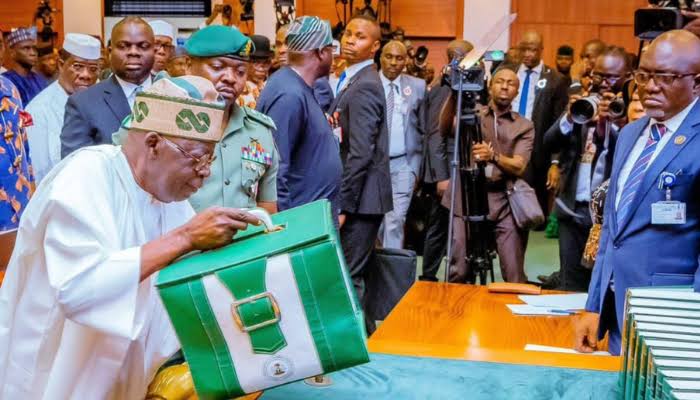

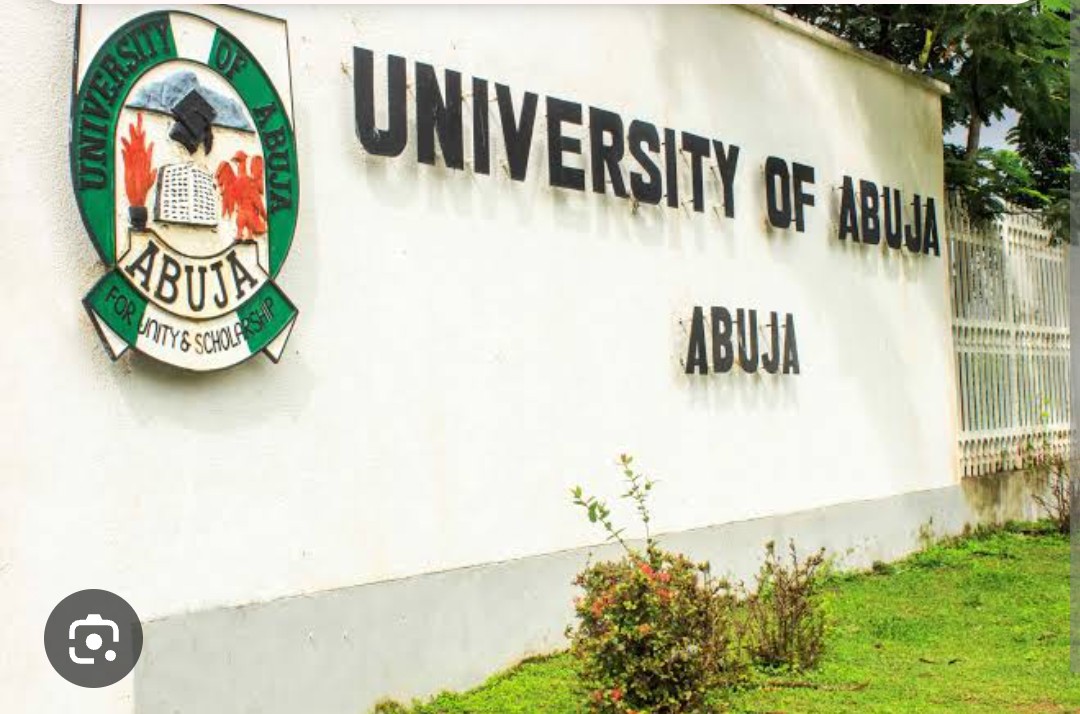


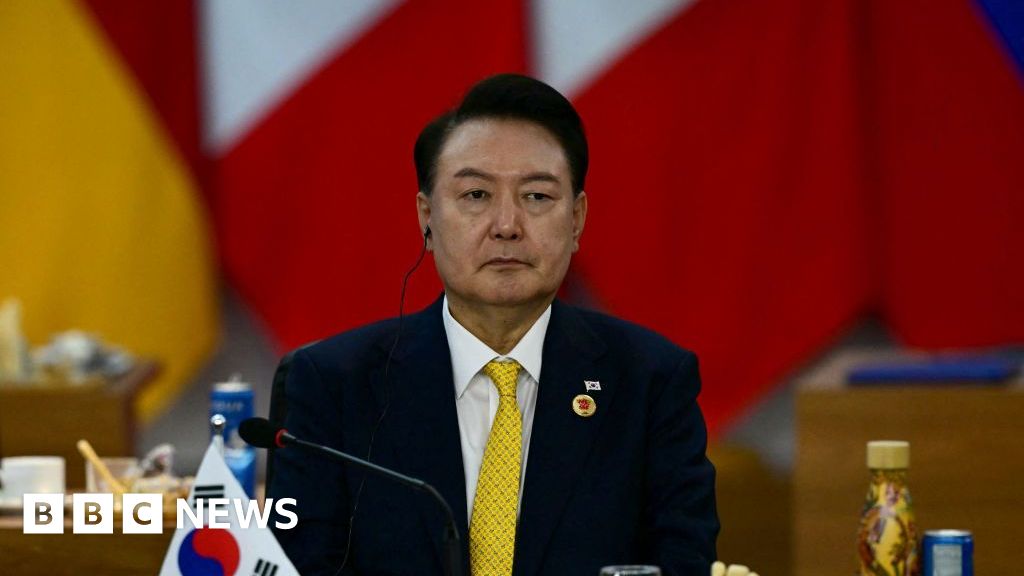

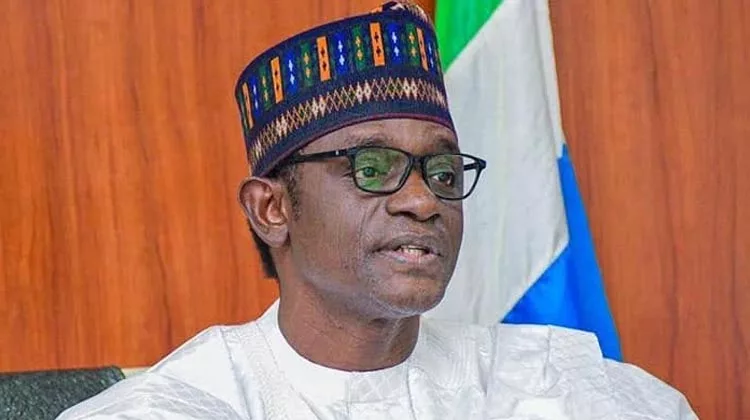




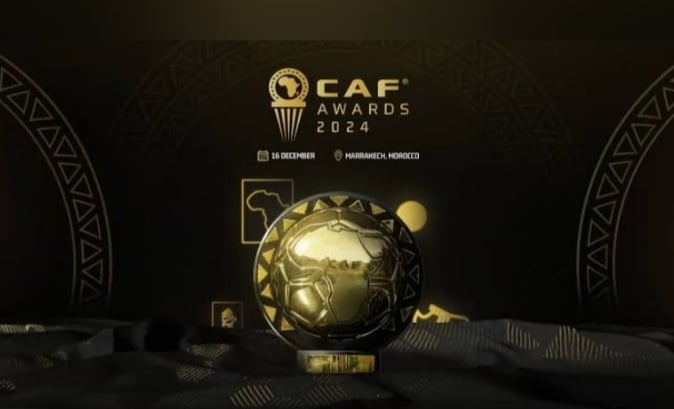
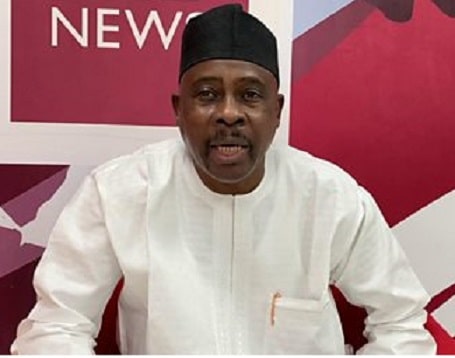

 English (US) ·
English (US) ·